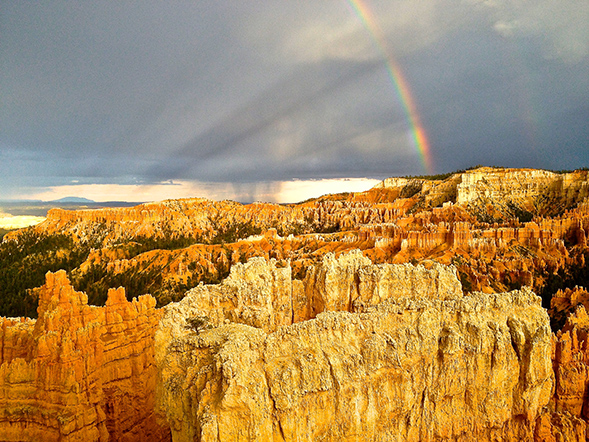Off the Beaten Course: RTM 305
This course explores the symbolism and meaning of wilderness in our lives.

Off the Beaten Course is a series that delves into SDSU's course catalog to share unique and non-traditional classes.
Course title: RTM 305, Wilderness and the Leisure Experience
Professor’s name: Larry Beck
Beck is a professor in San Diego State University's Department of Hospitality and Tourism Management. He is also involved with Aztec Adventures, a program that provides the SDSU community with opportunities to experience outdoor challenges that aim to promote personal growth, health and wellness, leadership, relationship building and environmental responsibility.
1) What inspired you to create this course?
I’ve been teaching this course for about 25 years. It is about the symbolism and meaning of wilderness in our lives, as individuals and collectively as a society. Given the fast pace most of us live and the ubiquitous presence of technology, this course offers a different way of looking at things with opportunities to learn more about our cultural and natural history firsthand.
2) What can students expect to learn from this course?
Students learn about what wilderness is, how it is protected (mostly within our national parks and national forests), how individuals can benefit from these places of inspiration and wonder, how these protected areas are managed, the politics of protecting them and our obligations to protect wild places left on the planet.
3) What makes this course different from similar courses?
Several things. This is a blended (or hybrid) course that meets in class on Tuesdays and has online assignments on Thursdays. Online assignments include weekly readings quizzes, online lectures and video segments from an incredible PBS documentary on the national parks by Ken Burns. The documentary is both educational and entertaining and students love it.
Rather than using a textbook I use three books — "Moving Beyond Treeline," "Meanings of a Wilderness Experience; The Wilderness Within" and "A Conservationist Manifesto." The first book I wrote (I don’t take royalties for the book to save costs for students). I also offer an extra credit book titled The Last Season written by a former student of mine. For this book he won the National Outdoor Book Award and Outside Magazine described the book as one of the ten best adventure stories of all time. He is a New York Times best-selling author and he has frequently come to my class to give a guest lecture.
Students have the option of going on an Aztec Adventure outing to complement course materials. For reasons why study abroad is important as a firsthand growth experience, these outings provide enriching and sometimes transformational experiences in nature. For example, this fall semester Aztec Adventures will be taking my students on trips to places like Yosemite, Sequoia, Joshua Tree and Channel Islands National Parks.
I tell stories that are thematic with the topic of the day. I didn’t always do this — many are personal — but students enjoy them and it helps them to remember the material, engage with the deeper meanings of the class and see how their professor embraces the material taught.
4) Is there one day on the syllabus for this course you most look forward to? If yes, why?
My initial response is that I look forward to every day. I love the subject matter, I enjoy college students and I like to teach. But there is one day in which I talk about wilderness and the human spirit that stands out. My story that day is about outdoor adventure events that are promoted to raise funds to cure cancer. The story is about two former students of mine, both who became national park rangers, who suffered diagnoses of lymphoma personally or in the family. These women have endured a lot and the class session brings some to tears. And yet it ends on a hopeful, uplifting note. Remarkably the two students know each other even though one is much younger. Even more remarkable, one was our outstanding graduating senior in 1999 and the other was our outstanding graduating senior in 2013.
5) What’s your favorite thing about teaching this course?
Believing that in some way I’m making a difference in students’ lives. And hearing from current and former students about how the course prompted them to do something.



